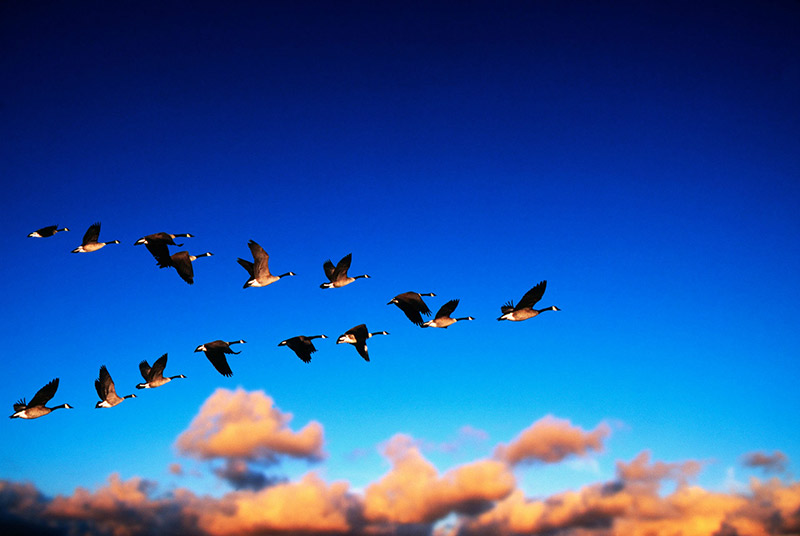I used to think of them as marathoners
raised to a power of ten: seemingly
indefinitely able to postpone
over Olympic hauls (four, five thousand miles,
a quarter of the globe's waxed face)
the need to flop down, flabby with exhaustion
and wait for rest, in its own good time,
to bring a better state of being.
After the bouillon of Canadian lakes in bloom,
fingerlings grown too big, air filled with lateness,
they lift, taking in stride the variegated land,
brick bunkers of the Bronx, the lay of Central Park,
giving room to LaGuardian pterodactyls,
the prickle of hunters on the Chesapeake
with their coy deceits, out over open ocean,
the earth's hull visible…
the camber and bell and hollow bone
(as grasped in the sienna studies of Leonardo)
working well, minute adjustments of the tail
with inertial certainty
keeping well to the right
the wrinkle of burnt Sierras, one side snow;
the desert incised by rulered roads,
by rounds of irrigated green; large-mannered Mexico,
the Mayan rhythms gathering to isthmus–
until you pointed out, two days ago,
that neither does the heart (not the "heart"
but the heart as grasped in the dissections
of Michelangelo) need rest, seemingly
indefinitely able to maintain
a heading and speed, resting as it goes,
through day's distractions, night's curing cold,
inclement weathers of every sort
until, after years of regularity,
it comes to a Patagonia not seen before;
landing in this new non-flying it doesn't need,
it joins in the clamor of its kind;
on shingle, inhospitable but free of predators,
just above the surf's antarctic burn,
it assumes the nesting rights established
when the pole was elsewhere and the continents one.
John Barr/from Hundred Fathom Curve


